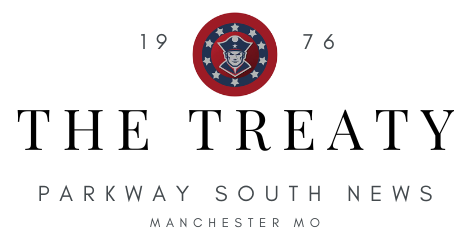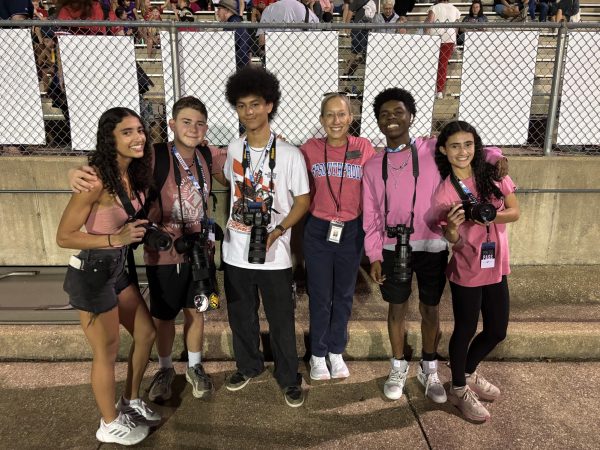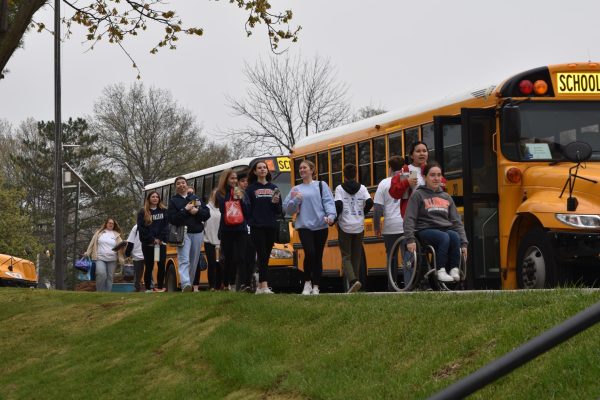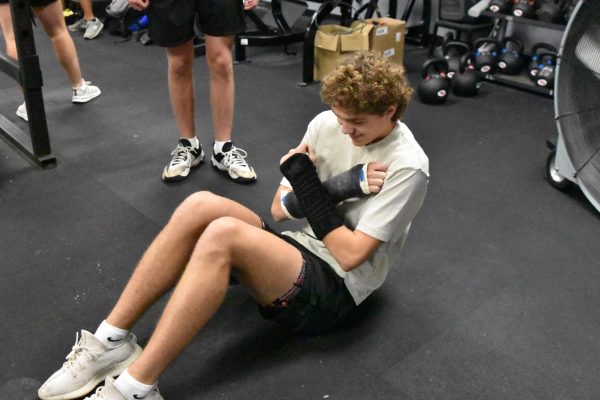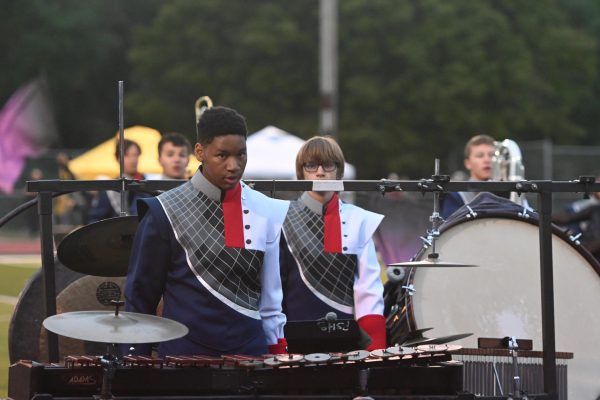Schools button up on dress codes
With the uprising conflicts of clothing standards and expectations, students and teachers have developed opinions on whether or not dress codes are a violation of the first amendment.
Freshman Chloe Lewandowski, shows her appreciation of clothing rules and regulations.
Chloe said, “ I feel dress codes are effective because people can pay attention to their education and not worry about their own or other students clothing,”
Although Lewandowski is in favor of the school’s regulation on clothing, she also understands why so many students are against the rule.
“I think dress codes are a violation of the First Amendment because I think that mainly girls are being dress coded, which takes away their chance at self expression and our voice through our choice of clothing.”
In the Parkway South student handbook, it states: “students will recognize that wearing revealing clothing is not appropriate apparel for school. Students shall not wear halter- tops, strapless garments, tops with spaghetti straps, or short shorts or short skirts.”
So what do administrators have to say about this? Don Furjes, principal of Remington Traditional, a K- 8th grade school, in the Pattonville School District, has an unusual stance on the dress code for an administrator.
“I believe students should be able to wear what they want when they want because it is freedom of speech and we do know through the supreme court case of Tinker and Des Moines that students can and should be able to express their first amendment rights inside of a school house.”
Remington’s dress code policy is as follows, “Tops must be appropriate fitting. No halter- tops, tube tops, torn or ripped clothing, or sagging pants.”
Furjes also says that he is never uncomfortable to enforce the dress code if he has to because he is there to make sure that students follow the rules of the Pattonville school.
As for freshman Clarisa Whitener, she supports the clothing requirements that schools around the country are enforcing.
“I do not think that dress code requirements violate students’ First Amendment rights because you can express yourself in other ways than just clothes. ” she said.
Whitener also believes that dress codes can protect schools, by regulating the attire in a facility and create a better learning environment.
To freshman student and varsity football player Eli Veltrop, dress codes only advocate for student learning and focus level.
“Dress codes do not violate students’ First Amendment right, because the way students dress could be a distraction to the learning of other students,” he said.
So how are students and teachers taking an active role in making sure they’re heard? Senior Emma Dames, makes sure her voice is heard.
“I was dress coded in the hallway walking to class last year by a teacher and so I told her that I was protected by the first amendment. She then said that she would call my mom if I didn’t put a jacket on.”
“Administration and students may never come to an agreement on dress codes, but both sides of the conflict need a chance to share their viewpoint.” said Dames.
